For the latest episode of her podcast, Adventures of Space and Tim, Ada Lovelace Day alumna Helen Keen spoke to screenwriter Allison Schroeder about her film Hidden Figures. The box office smash hit tells the remarkable true story of Katherine G Johnson, Dorothy Vaughan and Mary Jackson, three brilliant African-American women whose work at NASA was instrumental in putting John Glenn into orbit.
Keen talks to Schroeder about her favourite scenes, what it was like to mix space-fact and fiction, and the huge impact the film is having, particularly on younger audience members. She also discusses her feelings of optimism for the future of STEM, and also Hollywood. (Read more on the shortage of women in STEM affecting the UK and diversity in Hollywood (PDF).)
Allison Schroeder
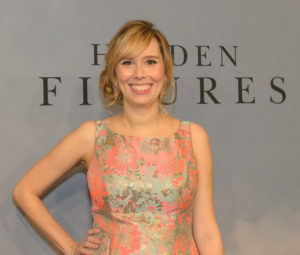
Photo Credit: (NASA/Bill Ingalls)
Allison Schroeder is a screenwriter in Los Angeles. Hidden Figures draws on her personal history, growing up near NASA in Florida where both her grandparents worked and then she interned herself at NASA for many years. Schroeder also has a musical pilot in development at Universal Cable and a feature, Agatha, is in development at Paramount. Her other credits include the musical Side Effects, 90210 and Mean Girls 2. She is the Co-Chair of the WGA Women’s Committee and serves on the WGA Diversity Advisory Board.
Both of Schroeder’s grandparents worked at NASA in Cape Canaveral as engineers, first on the Mercury, then Apollo missions. Her grandmother, who was one of the first women in mission control, stayed on for the shuttle missions as well.
When Schroeder was in 8th grade, she was selected for NASA’s NURTURE program, attending special sessions at Cape Canaveral and learning a variety of things from programming to how the shuttle worked.
She later attended Stanford, majoring in Economics, which was also heavy in maths. Although she is now devoted to her career as a writer, she still does maths — most recently breaking out the latest WGA statistics on hiring for women and minorities into a variety of user-friendly charts and graphs.
Adventures in Space and Tim
This interview is part of a series of Adventures in Space and Tim podcasts exploring the space industry and inspired by Tim Peake’s Principia mission to the International Space Station. It is supported by the UK Space Agency and the International Centre for Life. Previous guests on include first Briton in space Helen Sharman, former space flight director Libby Jackson, and nanochemist and science communicator Dr Suze Kundu.
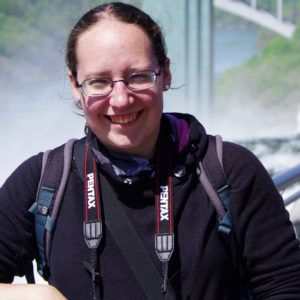 Our interviewees
Our interviewees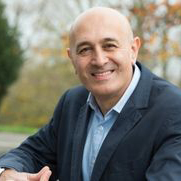 Jim Al-Khalili is a theoretical nuclear physicist, author and broadcaster based at the University of Surrey in England. He received his PhD in nuclear reaction theory in 1989 and has published over a hundred research papers in the field. He is a well-known presenter of TV and radio in Britain and his many popular science books have been translated into 26 languages. He is a recipient of the Royal Society of London’s Michael Faraday medal and the Institute of Physics Kelvin Medal. In 2016 he received the inaugural Stephen Hawking medal for science communication. He lives in Southsea in Hampshire with his wife Julie.
Jim Al-Khalili is a theoretical nuclear physicist, author and broadcaster based at the University of Surrey in England. He received his PhD in nuclear reaction theory in 1989 and has published over a hundred research papers in the field. He is a well-known presenter of TV and radio in Britain and his many popular science books have been translated into 26 languages. He is a recipient of the Royal Society of London’s Michael Faraday medal and the Institute of Physics Kelvin Medal. In 2016 he received the inaugural Stephen Hawking medal for science communication. He lives in Southsea in Hampshire with his wife Julie.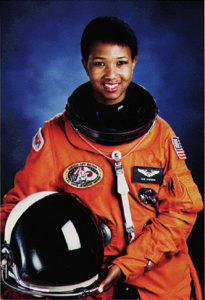 If you’re a fan of women in STEM and crochet, then you’re going to love our new project! We are
If you’re a fan of women in STEM and crochet, then you’re going to love our new project! We are 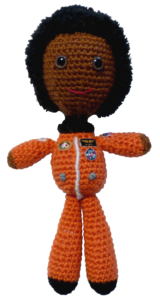
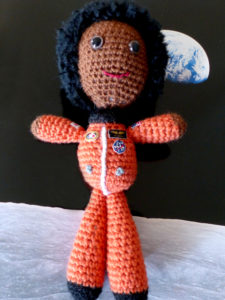
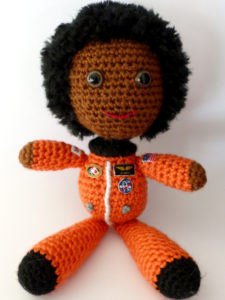
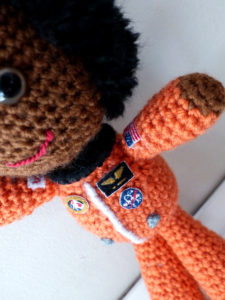
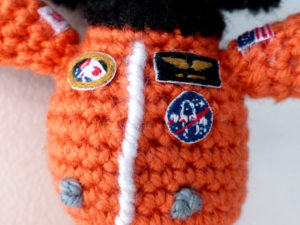
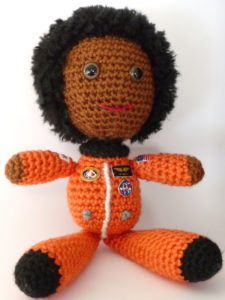
 Elaine Chew
Elaine Chew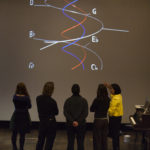
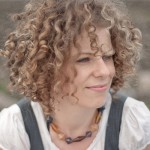
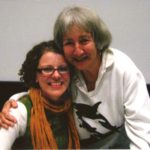
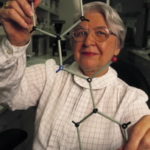 Discovery of the Month
Discovery of the Month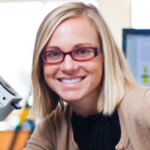 Dr Rae Robertson-Anderson is Associate Professor, Chair of Physics and Biophysics, and program director for the undergraduate biophysics program at University of San Diego. She has been a member of the faculty since 2009. Rae received her BS in Physics from Georgetown University in 2003, and her PhD in Physics from UCSD in 2007. She completed her postdoctoral research training in the Molecular Biology department at The Scripps Research Institute. Her PhD and postdoctoral research were funded by an NSF Graduate Research Fellowship and NIH postdoctoral training fellowship.
Dr Rae Robertson-Anderson is Associate Professor, Chair of Physics and Biophysics, and program director for the undergraduate biophysics program at University of San Diego. She has been a member of the faculty since 2009. Rae received her BS in Physics from Georgetown University in 2003, and her PhD in Physics from UCSD in 2007. She completed her postdoctoral research training in the Molecular Biology department at The Scripps Research Institute. Her PhD and postdoctoral research were funded by an NSF Graduate Research Fellowship and NIH postdoctoral training fellowship.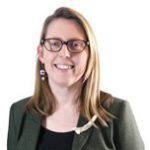 Dr Thorunn Helgason is a senior lecturer in ecology at the University of York, UK. She has worked for many years in research focussed on understanding how microbes build healthy soils, and how we can use this knowledge in crop production and habitat conservation. As a higher education professional, she has worked towards widening participation in STEM subjects at undergraduate and postgraduate level, and in public engagement, bringing science into the wider community.
Dr Thorunn Helgason is a senior lecturer in ecology at the University of York, UK. She has worked for many years in research focussed on understanding how microbes build healthy soils, and how we can use this knowledge in crop production and habitat conservation. As a higher education professional, she has worked towards widening participation in STEM subjects at undergraduate and postgraduate level, and in public engagement, bringing science into the wider community.